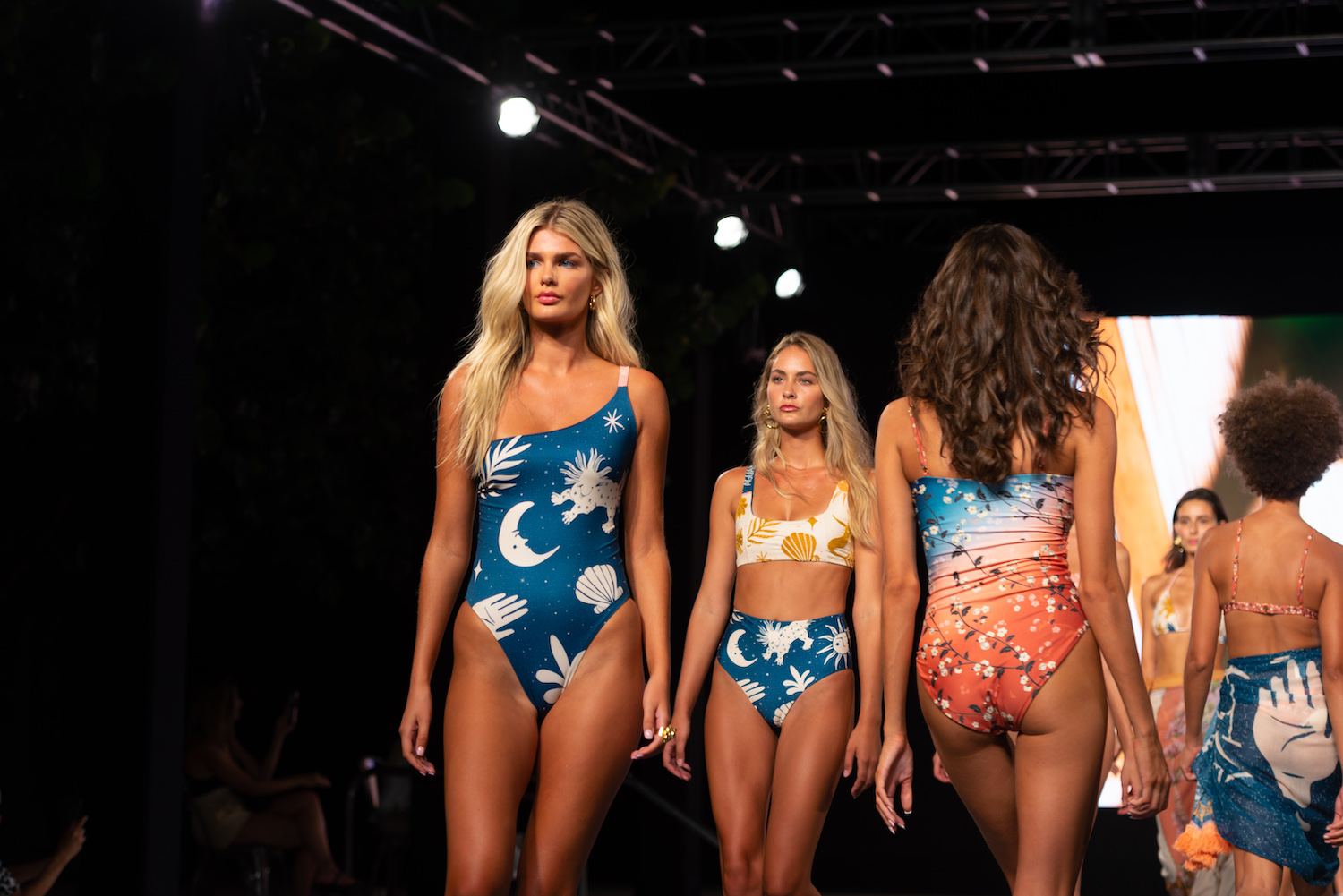Latin designers are shaping the swimwear industry at Paraiso Miami Beach
Sustainability and inclusivity were focal elements at this year’s Paraiso Miami Beach with swimwear brands paving the way for streaming and socially distanced shows. The runway events were smaller, more intimate and definitely exclusive, bringing back the mise en scène of fashion week established in the early 1940s. Miami Swim Week not only moved forward with in-person events during a global pandemic but also brought back the essence of designer-focused shows. A fashion week where the presence of influencers was dormant and the designs became more relevant. While the presence of many designers was invisible during this year’s presentation, the spotlight was on the fabrics, designs and embellished face masks. Even with a crowd-less season, the industry is seeking a way to reinvent itself and make a statement.
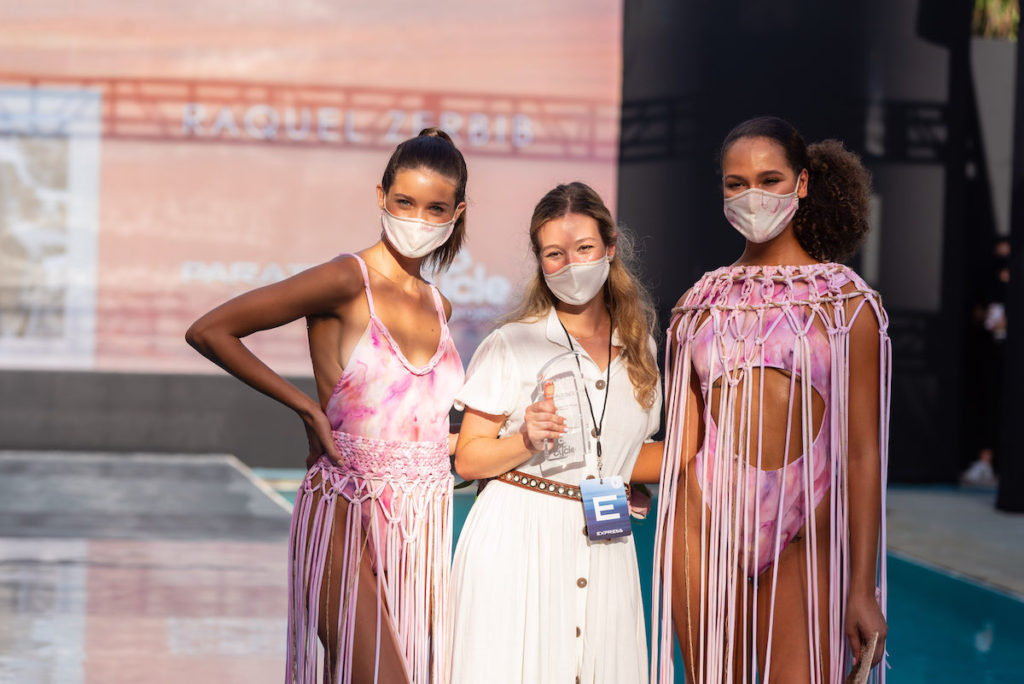
Silvia Tcherassi, Beach Bunny, Luli Fama, Agua Bendita were among the designers that moved forward with a COVID-safe environment show. Sustainable fashion seems to be the main focus of Paraiso where they showcased their second annual UpCycle Challenge which aims to teach design students how to repurpose fabrics and garments for the wellbeing of the planet. Raquel Zerbib from Miami International University of Art and Design was the winner of this year’s challenge and mentored by luxury swimwear brand Normaillot. Innovation in the swimwear industry can hit a hiatus when brands don’t think outside the box, but Raquel showed that inspiration can even come from textile waste.
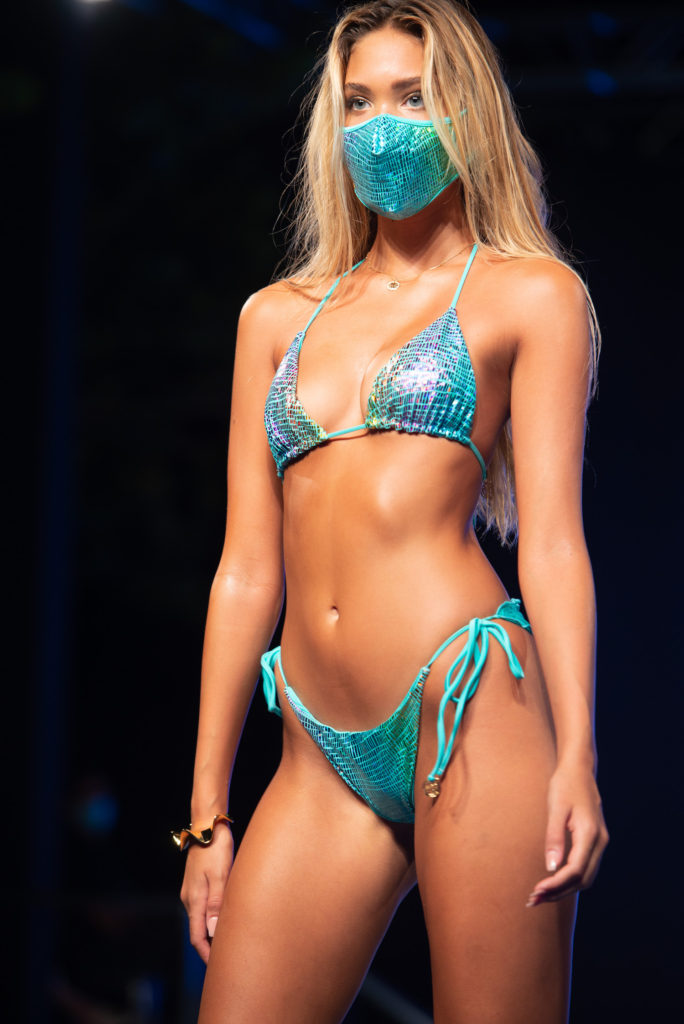
Miami-based brand Luli Fama has adapted post-Covid regulations and included face masks in their Diosa collection while staying true to their DNA with vibrant hues, lively metallics, sassy animal prints and feminine floral motifs. Marwida showed up with a men’s pop-up collection inspired in the coral reefs of the Mediterranean. Each swim trunk is made with recycled plastics from the Mediterranean region and $5 goes back in cleaning the ocean. Another evidence of how swimwear brands are leading the sustainable market.
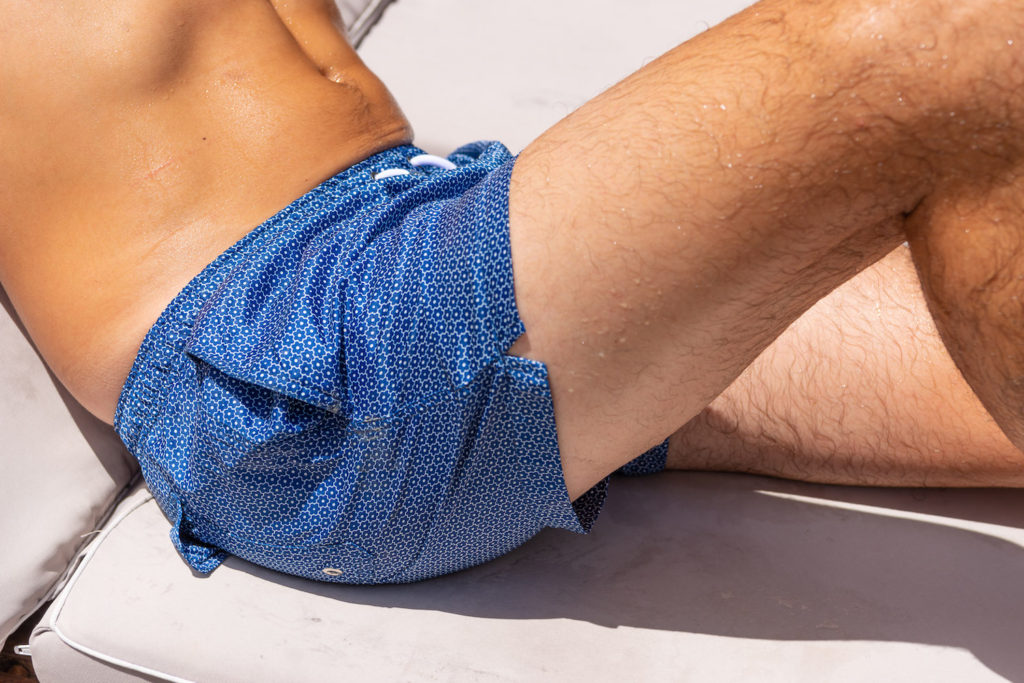
Though swimwear and bikinis are connected to well-sculpted bodies, designers continue to raise awareness in body positivity. The Colombian brand Maaji presented a collection featuring body inclusive models of all shapes, sizes, genders and races. The diversity in fabrics, colors and shapes is a conscious effort to move away from tradition and into a culturally diverse zeitgeist.
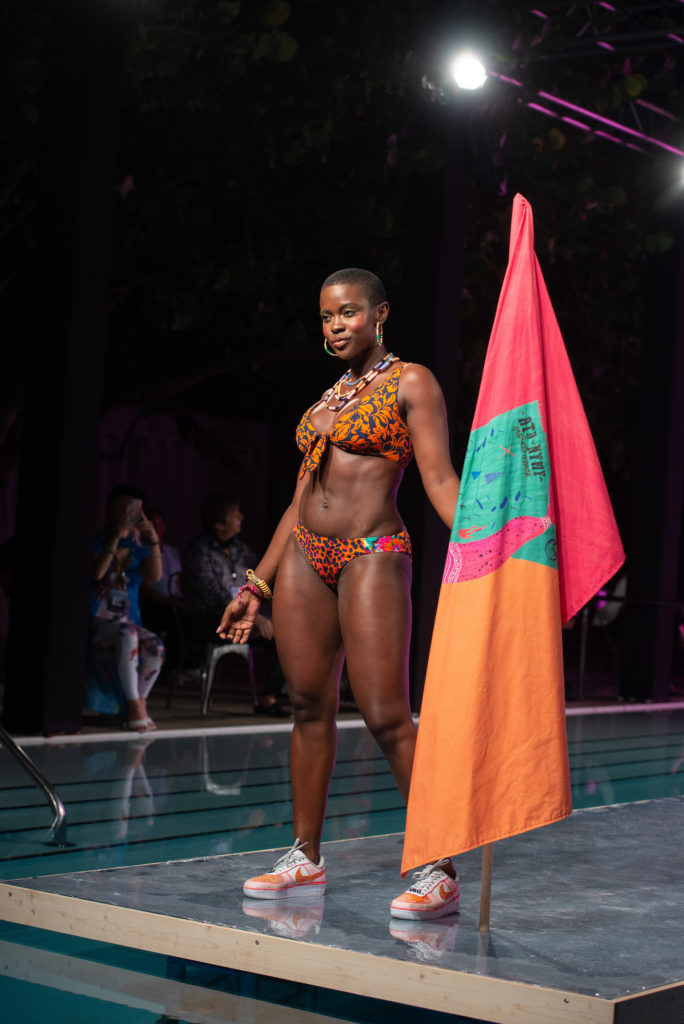
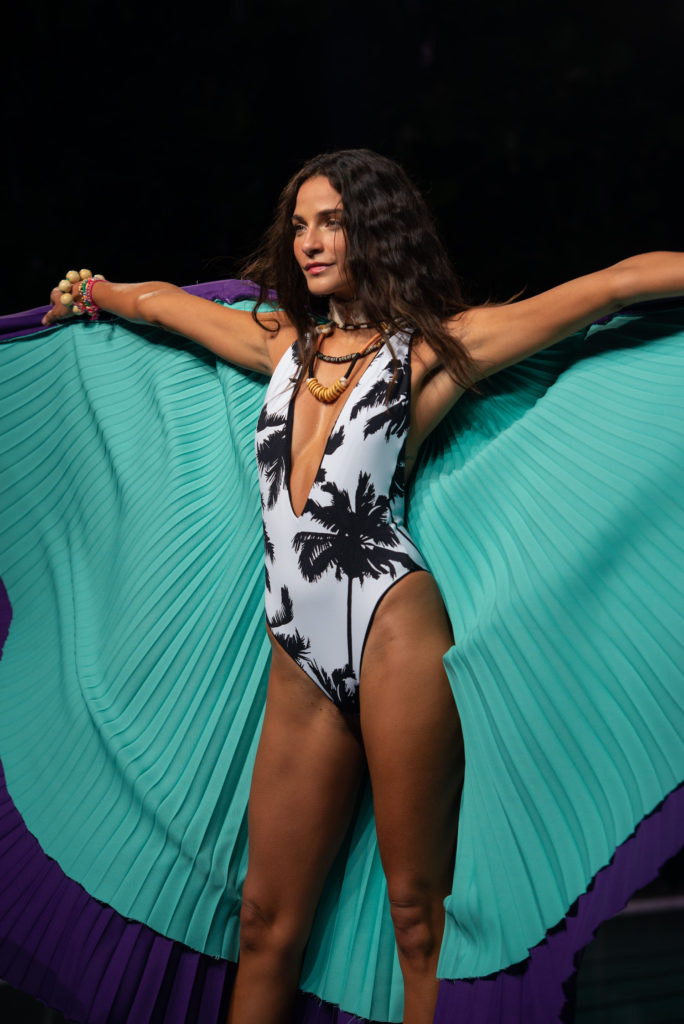
It is about time that swimsuits become multipurpose and not just beach-oriented. Multi-functionality is what defines Maaji and other brands, where customers can wear the garments in different ways. As people continue to adapt to the ‘new normal’, this is a season for brands to re-think their swimwear and how to include versatility in the manufacturing equation.


